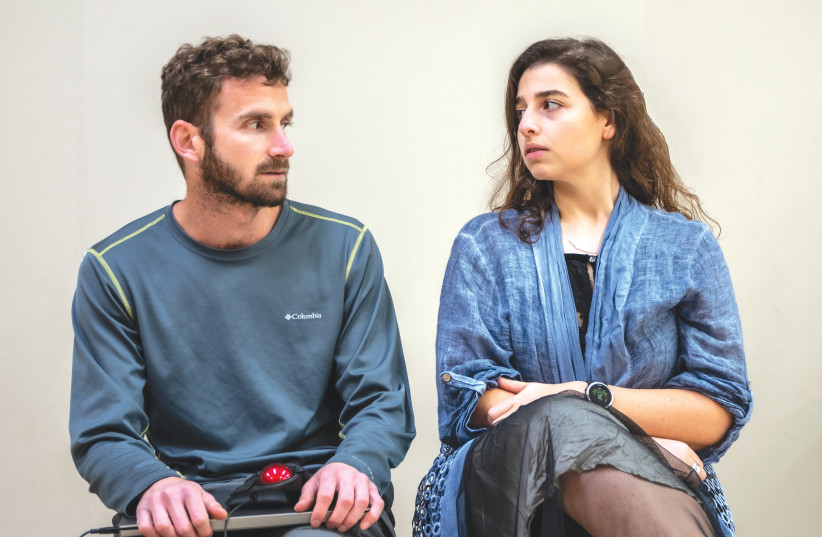Israel’s veteran English-language theater group, LOGON (the Light Opera Group of the Negev) recently celebrated its 40th anniversary with a round of performances of an original show titled The Broadway Cure.
The musical, written by librettist Jeff Meshel, is a comic satire on the post-corona world. The plot centers around the imminent closure of a last Post-Pandemic Psychological Trauma (PPPT) hospital ward that houses two dozen patients severely damaged by lockdowns and social distancing.
Some of the patients are still convinced that the novel coronavirus was a fake pandemic. Others believe it is still prevalent and that it’s not safe to go outside beyond the four walls of the PPPT ward. All the patients have suffered emotional harm from the measures taken to stop the spread of the disease. The show is funny and pertinent, focusing on the need to move beyond the era of the COVID restrictions.
The show is set “in the near future.” That time is now here. As of Saturday night, following a decision by Prime Minister Naftali Bennett and Health Minister Nitzan Horowitz, face masks are no longer required in closed public spaces. Although masks remain a requirement in high-risk locations – medical clinics, hospitals, old-age homes and on flights entering or leaving the country – for the most part, for most people, they will now be a thing of the past.
The Health Ministry, however, did issue a recommendation for those who are considered at high risk for the virus to continue wearing masks in enclosed spaces despite the reversal of the compulsory mandate.

The requirement to wear a face mask in closed areas, first introduced soon after the start of the pandemic, has been in place for almost two years in Israel with a brief two-week respite in June last year, before the onset of the spread of the Delta variant. With the later Omicron variant, the mask mandate remained in place until this week.
“We have finally learned how to live alongside the coronavirus – without panic, with responsibility and sound judgment,” said Bennett and Horowitz in a joint statement. “The coronavirus has not disappeared, but currently no special restrictions are needed. We are acting as we have been doing since the establishment of this government: safeguarding public health while lifting restrictions whenever possible.”
We are clearly entering a new era. But we must take care not to throw caution to the wind as we throw our masks away. The lifting of basically the last restrictions is good news. We can breathe easier. However, we need to remember that COVID and its variants have not entirely disappeared and might never entirely be eradicated. In addition, there will always be other diseases carried in the same way.
As the government-imposed restrictions are being removed, it is time for each citizen to take extra responsibility for his or her own actions.
It is important that people get used to having the life-saving vaccination just as people get vaccinated against the flu and childhood diseases. Witnessing the comeback of the completely preventable and utterly devastating polio is a reminder of the importance of vaccinations.
Similarly, we must all try to maintain the same level of hygiene and the basic precautionary steps that became the norm during the height of corona. If you feel the symptoms of COVID or any other virus, stay home and don’t risk infecting others who might be more vulnerable.
In addition, while the wearing of masks is no longer mandatory, there are places and situations in which it remains advisable, especially for those at high risk. While there is no regulation demanding masks on public transportation, in shopping malls, theaters and other crowded, enclosed environments, there is no requirement to abandon them.
Those who feel safer wearing masks must feel free to do so. The desire to return to normalcy – to the pre-corona days – is natural, but we must take care not to abandon all caution and precautions. As the prime minister and health minister noted in their statement, we are learning to live alongside the virus. It can be done. Nonetheless, for this to work, every individual must continue to take responsibility and act to protect themselves, their loved ones and society in general.
Rescinding the mask regulation is a cause for celebration, but we need to exercise common sense and common decency for the new normal to be sustainable.
